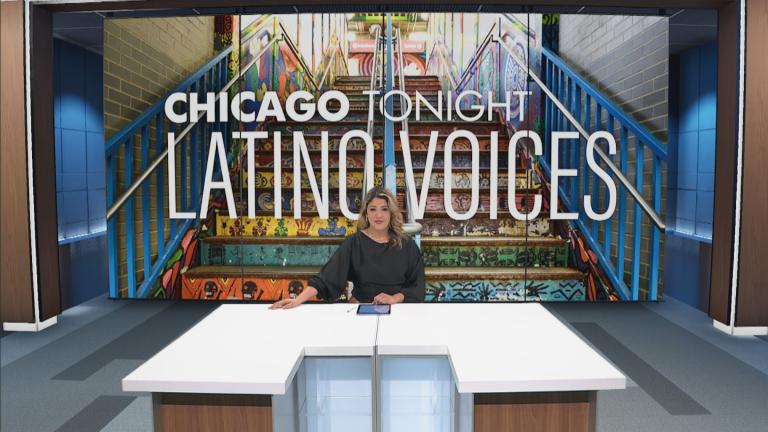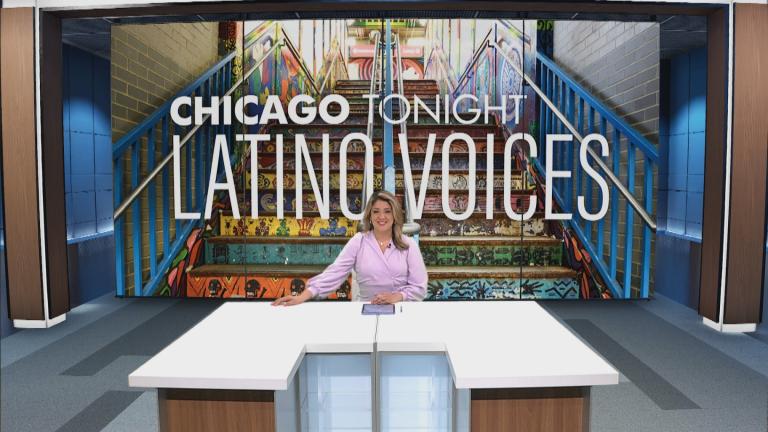In stage performances and in the studio, the couple behind Jefferson Park’s Hōkūle’a Academy of Polynesian Arts tells their love story through dance.
“I love seeing him do what he loves to do. So I really enjoy when he dances and we dance together,” said Mexico native Ale Gabino of her husband, Chicago native David Acevedo.
Gabino and Acevedo are both lifelong dancers. After meeting at a 2003 Polynesian dance competition in Hilo, Hawaii, they married in 2009. A year later, they opened Hōkūle’a Academy of Polynesian Arts, where together, they teach their other great love – Polynesian culture and dance.
“In Mexico I feel like [at] a family gathering, everybody eats, everybody dances and plays games, stuff like that. So that’s something that I saw in the Polynesian culture, that they are very family oriented, it’s all about the family,” Gabino said. “Polynesian dancing goes very deep into connecting to everything in nature, their ancestors, the land that they live in.”
“Hawaiian hula is storytelling,” said Acevedo. “For the Hawaiians, it was a way of record keeping before there was a written language.”
And Hōkūle’a’s professional division performs all over the city. They say their aim is not only to entertain, but to educate.
“Our main focus out of all of the Polynesian cultures are Hawaii and Tahiti. When you go to a luau in Hawaii, they represent all of the cultures, all of the other Polynesian islands, so people just get that idea that’s all Hawaiian dancing. So then when they start learning the dance in class, they’re like, oh there are two different things, you know, completely different styles. I feel like I have that responsibility to those Polynesian cultures that I am portraying that it has to be the right way, so I do try to do my best to keep it as authentic and respectful as possible.”
“Learning a lot of this stuff directly from Hawaiians, Tahitians, we teach that to our dancers that these are the movements, these are the teachings we were taught,” added Acevedo. “And in most Polynesian cultures, it’s a gift. So you pass that gift on.”
Acevedo and Gabino say their students, who come from all over the Chicago area, often have a personal connection to Polynesian culture that leads them to seek out Hōkūle’a.
“I just received a call yesterday from a dancer who was born and raised in Hawaii, he’s lived here in Chicago for five years and he misses home,” Acevedo said. “So for him it’s more about the camaraderie, the fellowship, that ohana, that family sense.”
But whether the dancers come from Hawaii, Mexico, or Chicago – and whether they learned those steps on a tropical island or in Jefferson Park – the story Hōkūle’a tells always returns to love.
“When I do get to see him dance, I’m just, like, in love,” Gabino said. “I feel like that's something that connects us anyway — it’s not home, but it feels like home.”
“That’s the cool part, that we get to do the business, but we also get to perform together,” Acevedo said. “The love is deep, and it’s real and we can share what we have with others through dance. It's pretty cool.”








